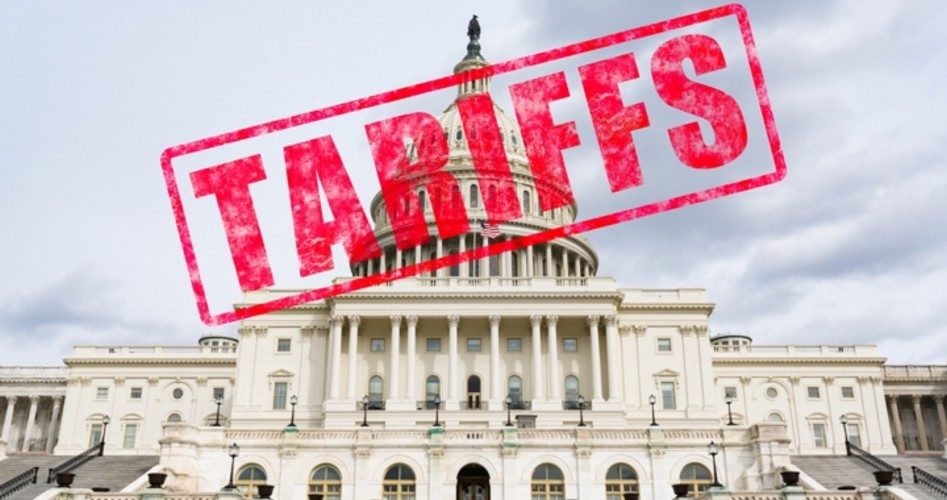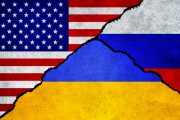
In an opinion piece posted at Chathamhouse.org on June 14, Marianne Schneider-Petsinger, Geoeconomics Fellow of Chatham House’s “US and the Americas Programme,” stated that “free-trade Republicans” (i.e., those who are opposed to tariffs) are up in arms about President Trump’s recent imposition of tariffs on steel and aluminum imports from important U.S. allies such as the EU, Canada, and Mexico.
Chatham House is the rebranded name for the Royal Institute of International Affairs (RIIA), which was organized at a joint conference of British and American diplomats and scholars in 1919. Two years later, a group of like-minded internationalists started a sister organization to the RIIA in New York, the Council on Foreign Relations (CFR). Chatham House and the CFR have promoted an internationalist, one-world outlook in foreign affairs for the UK and the United States ever since.
Schneider-Petsinger wrote that the major concern for these free-trade Republicans is that Trump’s latest trade moves could set off a trade war that would damage the economy by undoing the boost from last year’s tax cuts. Republicans hope to take credit for a booming economy going into the November elections.
Schneider-Petsinger took an unexpected position for an organization with an internationalist, free trade history in advocating that Congress pass an extension disapproval resolution to stop the renewal of trade promotion authority (TPA) when it expires on June 30. She correctly noted:
The US constitution gives Congress the authority “to regulate commerce with foreign nations” and “to lay and collect taxes [and] duties.” But over the past few decades, Congress has delegated much of its trade power to the president. The legislative branch could wrest it back now.
Schneider-Petsinger’s suggestion for Congress to adopt a disapproval resolution is a good one. In fact, The John Birch Society (with which The New American is affiliated) sent out a legislative action alert in April recommending the same thing. That alert noted, in part:
Congress should reassert its constitutional authority, under Article I, Section 8, Clause 3, of regulating commerce with foreign nations by ending TPA. All it will take to end TPA is for the majority of one legislative chamber of Congress (either the House or Senate) to pass an extension disapproval resolution.
Without TPA, a newly renegotiated North American Free Trade Agreement (NAFTA) would likely not pass out of Congress. Instead, it would be subject to debate, the possibility of amendments in both House and Senate, and filibuster in the Senate (requiring 60 votes to end a filibuster and proceed).
The report quoted from an article Henry Kissinger wrote in 1993 referring to NAFTA as “the most creative step toward a new world order taken by any group of countries since the end of the Cold War” and stated further that it “is not a conventional trade agreement, but the architecture of a new international system.”
Schneider-Petsinger’s recommendations are somewhat disjointed. By opposing the renewal of TPA, she joins constitutionalists in wanting to withhold trade authority from the president that rightfully belongs to Congress. But that is where the benefit of her proposals ends.
However, unlike The John Birch Society, which sees the withdrawal of TPA as necessary to prevent a dangerous updated NAFTA (the forerunner to an EU-like North American Union), Schneider-Petsinger simply wants to prevent Trump from imposing tariffs. She is silent on stopping NAFTA or similar “free trade” agreements because the internationalists at Chatham House are very much in favor of such agreements.
Remember, Kissinger said NAFTA is “the most creative step toward a new world order taken by any group of countries since the end of the Cold War.” Kissinger is a long-time member of the CFR, which has been a partner with Chatham House in bringing about the new world order that Kissinger advocated. This is no secret. Chatham House published an article last January (“The Future of the Liberal World Order”) in which the author posed this rhetorical question: “And, looking forward, what will be the most pressing and dangerous threat to the liberal world order in 2018?”
Photo: pabradyphoto/iStock/Getty Images Plus
Related article:


